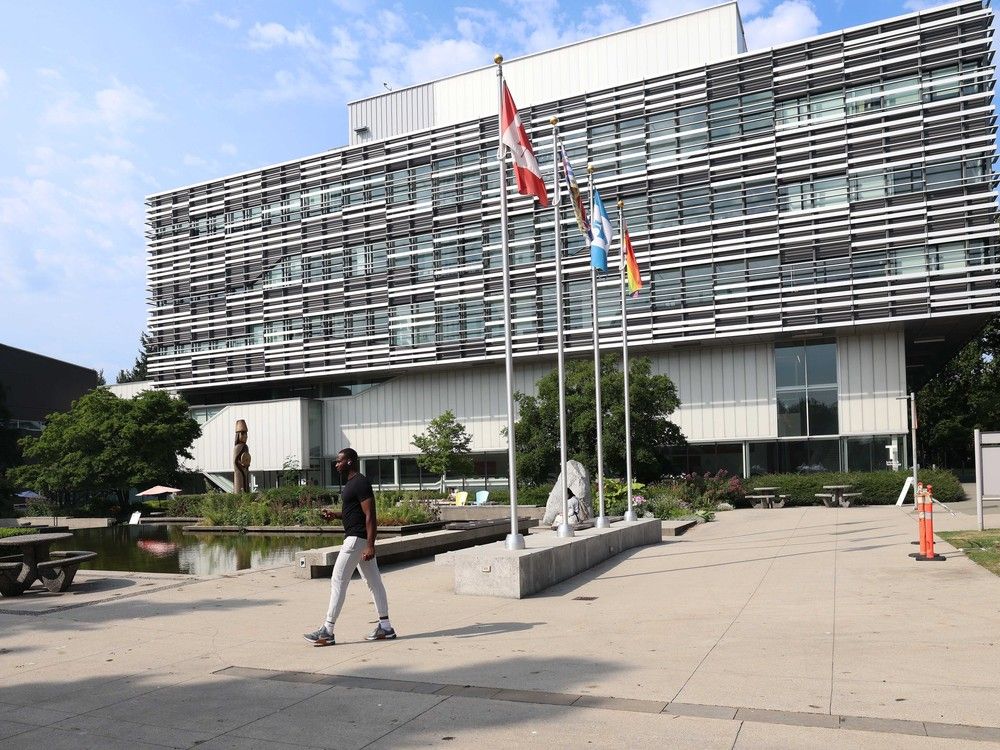
A student from Iran may be able to study at Langara College after all, after a Federal Court judge ruled an immigration officer erred in denying her a study permit.
Sanaz Mohammad Abadi had a letter from her Iranian employer offering her a job as manager of a new marketing department at twice her previous pay if she completed the marketing and business management program at Langara College, according to a decision by Justice William Pentney.
She had asked the court to review a decision by a visa officer from the federal Immigration Department that questioned her intentions of coming to Canada and denied her a study permit.
For the Federal Court judge to interfere with a decision by the officer, he had to find the officer’s decision was not reasonable.
Mohammad Abadi had applied to enrol in English for academic purposes and a post-degree marketing management program at Langara.
The unnamed officer denied her entry, ruling she hadn’t proved why she chose to spend the additional money to come to Canada when there were similar and less costly programs closer to her home, Pentney wrote in his ruling.
And the officer also concluded she didn’t provide enough details on why studying in Canada was necessary and beneficial or that she had academic proficiency to complete the Langara course, he wrote.
Based on those findings, the officer was “not satisfied (Abadi) would depart Canada at the end of her authorized stay,” he wrote.
The onus was on Abadi to prove in her study plan she was coming to study and would leave at the end of the authorized stay, and she did that, Pentney concluded.
“It is difficult to imagine a better justification for coming to Canada and study at a particular program” than doubling her pay and increasing her commissions, he wrote. “But there is no mention of this in the officer’s notes.”
That was enough to find the officer’s decision was unreasonable, he said.
Among other “troubling aspects” of the decision were officer’s failure to back up the decision about her cheaper schooling options.
The judge acknowledged judges must defer to an officer’s knowledge and expertise regarding the cost of local schools. But he said the courts have ruled that it is not “sufficient for that local knowledge to stay entirely inside the head of the officer; at least some of it has to find its way into the decision.”
The officer could have named a school or referred to an objective list of schools, “anything to indicate that the officer has a source for their information and is not making a bald statement,” Pentney wrote.
The judge also questioned the officer’s reasoning behind determining Mohammad Abadi would not be able to academically handle the Langara course when she submitted she had a 14.38 grade point average for her bachelor’s degree. In addition, she had an acceptance letter from Langara, he wrote.
He said finding she lacked academic proficiency is an “unreasonable conclusion,” he wrote.
Pentney did agree with the officer that Abadi’s study plan had included “generic and somewhat vague reasons” for wanting to study in Canada.
But Pentney said the officer failed to include Abadi’s evidence that she said she needed to improve her knowledge of marketing and business management as well as improve her English.
“She had a job opportunity that demanded those exact things,” said Pentney.
“Reasons for refusing a student visa do not need to be long or detailed,” wrote the judge. “Officers only need to demonstrate an engagement with the crucial evidence submitted by the applicant, and the reasons must explain the key points of the reasoning to justify the result.”
He quashed the officer’s decision and set it aside, sending the application back to the department for a decision by a different officer, according to the ruling.